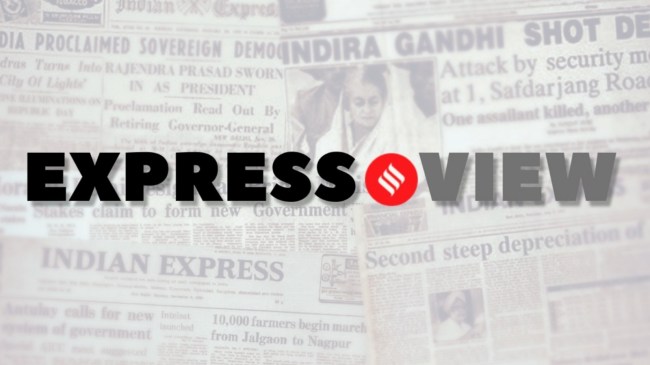Opinion Express View on SC’s electoral bonds judgment: A vital verdict
Court striking down this scheme is a landmark moment. It affirms principles of transparency and probity, and the people’s right to know
 The government must be guided by the principles of transparency and accountability as it gives the issue a deeper look. That’s the central message of the SC's landmark verdict.
The government must be guided by the principles of transparency and accountability as it gives the issue a deeper look. That’s the central message of the SC's landmark verdict. Introducing the electoral bonds scheme in Union Budget 2017-18, the then finance minister, Arun Jaitley, had underlined that transparency in political funding is fundamental to the fairness of the election process. However, rather than helping clean up the shadowy world of poll finance, the electoral bonds scheme, which Jaitley had called the first step, had, over the years, invited criticism for increasing the system’s opacity. Concerns over the scheme’s structure based on anonymous donations were voiced even by the Election Commission and the Reserve Bank of India. The bonds allowed donors and parties to keep their association hidden from the public — the State Bank of India, a government-owned bank, and not an independent institution like the RBI, could track the donations. The Supreme Court’s decision to strike down the changes in the law introduced to create electoral bonds is, therefore, enormously welcome, especially because it is anchored in the citizen’s right to know. A five-judge bench headed by Chief Justice D Y Chandrachud ruled that the donor secrecy provision is “unconstitutional” and “arbitrary and violative of Article 14”. CJI Chandrachud set the tone for the verdict by stressing that,“information about funding of political parties is essential for the effective exercise of the choice of voting.” In the name of informational privacy, electoral bonds restrict the Right to Information to an unacceptable extent, the bench held unanimously.
Studies by the Association for Democratic Reforms show that the BJP garnered the lion’s share of the bonds issued in the first tranche. Analysis of declaration data shows that in the six years since the scheme was introduced, around 55 per cent of the funds extended through the bonds have gone to the BJP — Congress came a distant second with less than 10 per cent. A report in this paper in November 2019 revealed the lopsided nature of this financing system — electoral bonds with denominations of Rs 1 crore accounted for more than 91 per cent of the Rs 5,896 crore raised in the first 11 phases of the sale of bonds. All this lent credence to allegations of corruption and cronyism, and perceptions of an uneven playing field. The government maintained that donor anonymity was necessary to shield contributors from potential retribution. But as the five-judge bench pointed out, “at a primary level, political contributions… enhance access to legislators. This access also translates to influence over policy making. There is also a legitimate possibility that financial contributions to a political party would lead to a quid pro quo arrangement because of the close nexus between money and politics.” The court has also pointed out that the ability of a company to influence the electoral process through political contributions is much higher when compared to that of an individual — both in terms of the quantum of money contributed, and the purpose of such contributions.
Attempts to make political funding more transparent must continue. As the SC has said, “There are means other than electoral bonds to achieve that purpose”. The government must be guided by the principles of transparency and accountability as it gives the issue a deeper look. That’s the central message of the SC’s landmark verdict.





